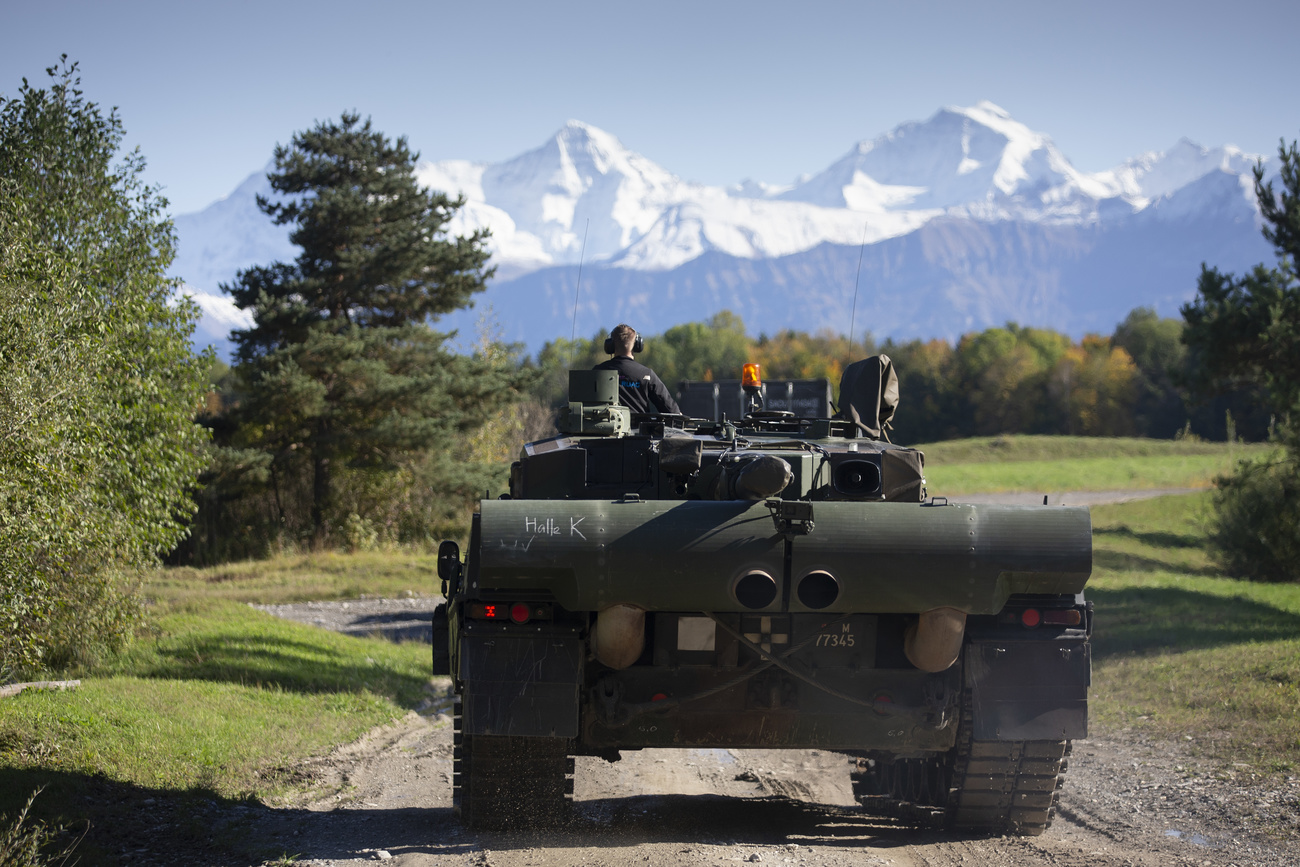
Support grows for proposed Swiss army budget hike

Swiss military spending should increase from CHF5.6 billion ($5.7 billion) a year to around CHF7 billion, according to one of Switzerland’s parliamentary chambers.
The House of Representatives on Monday voted to increase the budget to at least one percent of gross domestic product (GDP) by 2030.
Since the end of the Cold War in 1990, Swiss military spending has fallen from 1.34% of GDP to 0.67% in 2019.
But Russia’s invasion of Ukraine has sparked intense debate in neutral Switzerland about whether this is now enough to meet increased security threats.
The House of Representatives has signaled its support for spending more money on the armed forces, despite opposition from leftwing political parties.
Defence Minister Viola Amherd has thrown her support behind the proposed budget hike.
But this is just the first step in a potentially long political process before a final decision is made. The Senate is yet to debate the same issue and could end the discussion if it disagrees with a spending increase.
And Switzerland has a history of voters challenging military spending decisions through popular initiatives.
Defence debate
The Ukraine war has changed perceptions of defence policy, said Andreas Wenger, Director of the Center for Security Studies at the federal technology institute ETH Zurich, in a recent interviewExternal link,
“Right now, the Federal Council, administration, parliament and political parties need to concentrate their efforts on preparing an in-depth analysis of how the war will affect the global and European environment for Switzerland over the medium term,” he said.
“Just like its neighbours, [Switzerland] needs to be prepared for a more confrontational European security order. The conventional scenario of tanks penetrating Switzerland’s border remains highly unlikely, even after the Russian invasion of Ukraine. “
“However, the state’s ability to enact its policies could still be challenged by terrorist groups and political disinformation, as well as political and economic blackmail. Attacks could also be carried out over long distances, either with missiles, for example, or in cyberspace.”
Wenger added that military alliances with NATO and the European Union may evolve as a result of the Ukraine war. But he believes that Switzerland could also leverage its political neutrality and traditional peace-keeping activities to dampen the threat of increased military confrontation in Europe.

In compliance with the JTI standards
More: SWI swissinfo.ch certified by the Journalism Trust Initiative




























You can find an overview of ongoing debates with our journalists here . Please join us!
If you want to start a conversation about a topic raised in this article or want to report factual errors, email us at english@swissinfo.ch.